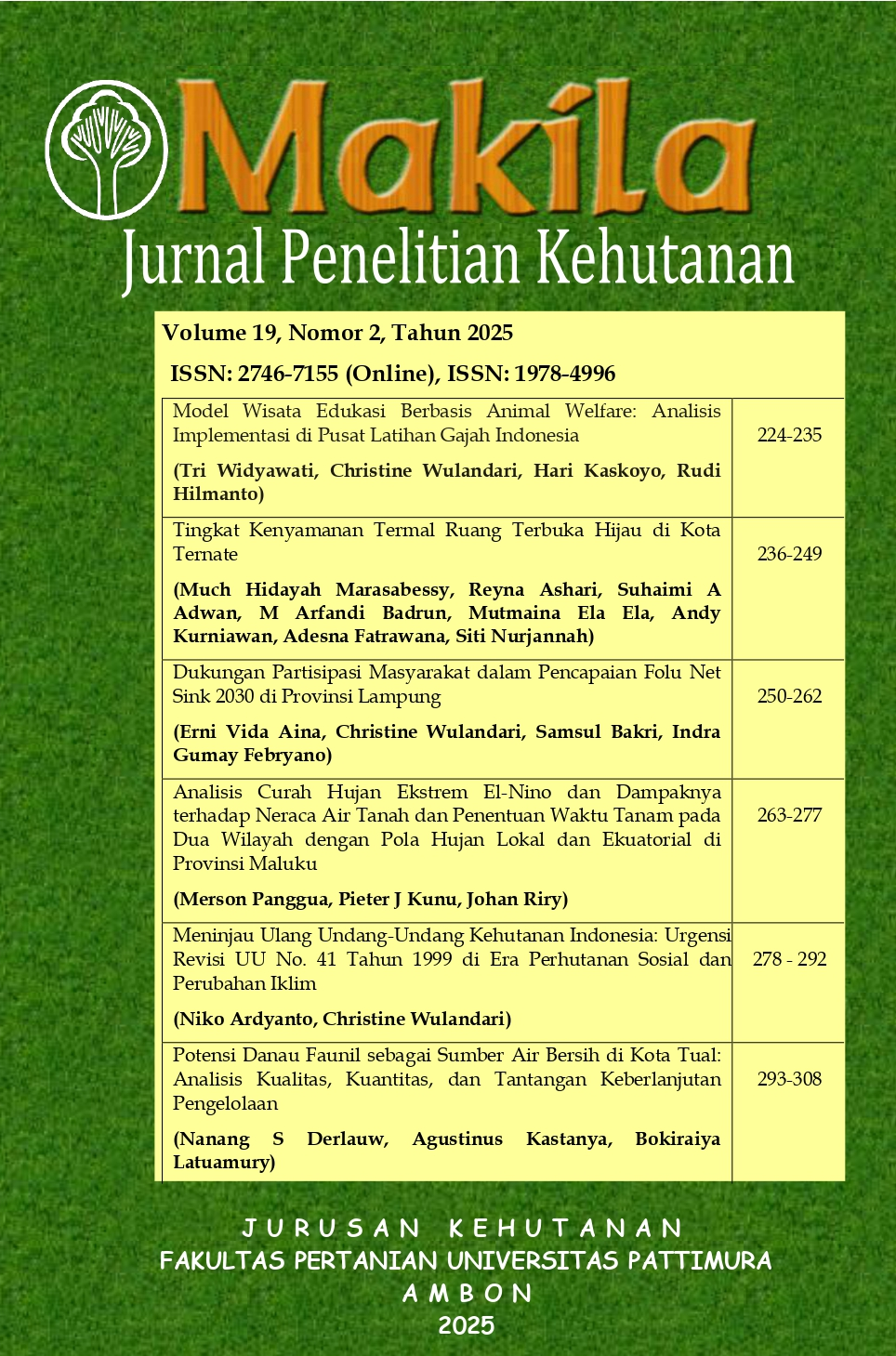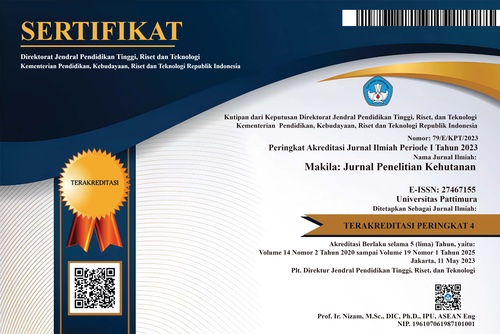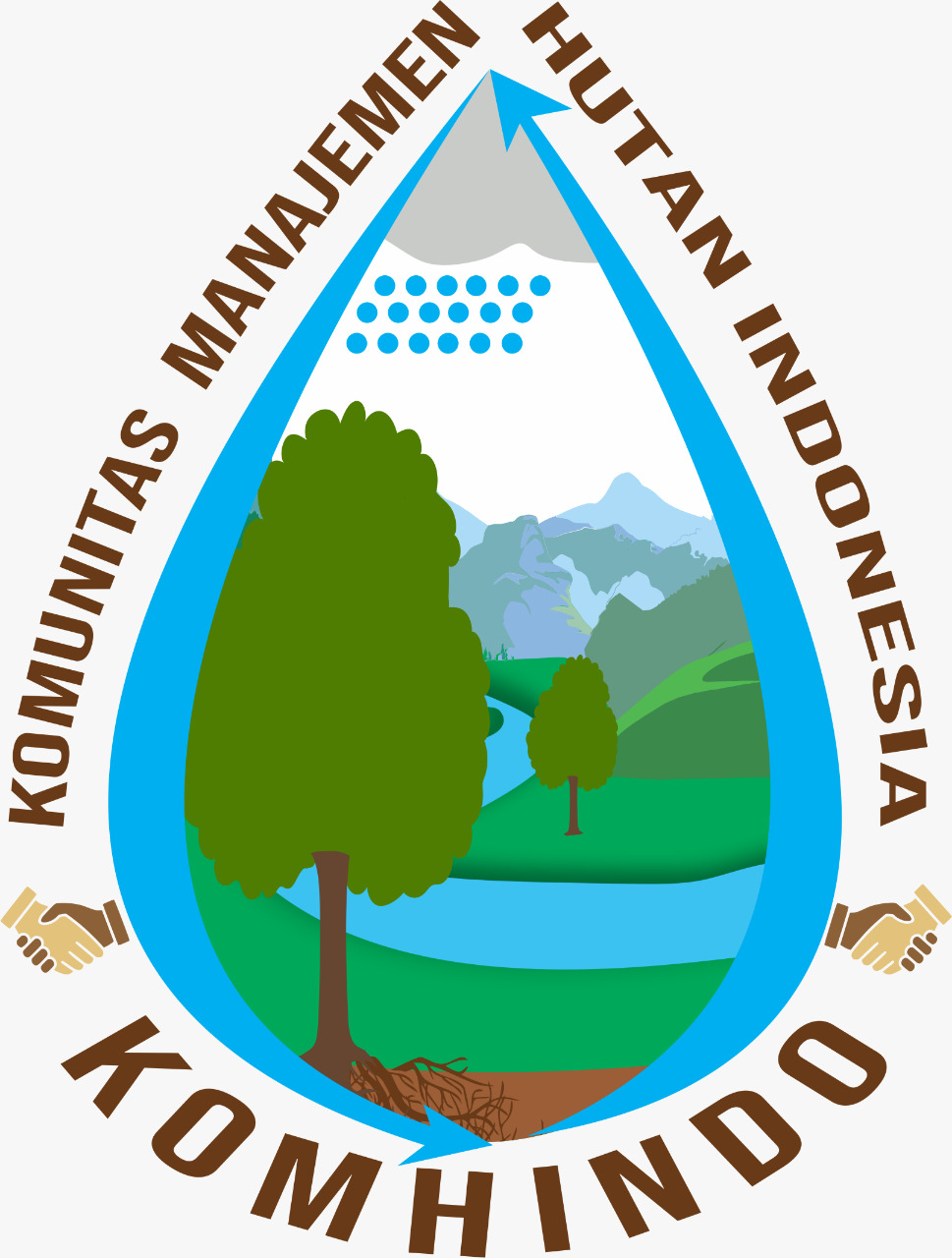Potensi Danau Faunil sebagai Sumber Air Bersih di Kota Tual: Analisis Kualitas, Kuantitas, dan Tantangan Keberlanjutan Pengelolaan
Abstract
This study evaluates the sustainability of Lake Faunil as the principal freshwater source for Tual City, located in a small-island environment characterised by limited groundwater reserves and increasing hydrometeorological vulnerability. Employing a quantitative–descriptive approach, the research analyses ten years of water-quality data—covering BOD, COD, DO, pH, and TDS—alongside seasonal discharge records to examine spatial and temporal dynamics. The results reveal that pH and TDS remain within the Class II water-quality standards established under Government Regulation No. 22/2021, indicating chemical stability and low salinity. In contrast, BOD and COD have consistently exceeded permissible limits since 2018, suggesting chronic organic pollution primarily linked to unmanaged domestic wastewater inflows. Dissolved Oxygen (DO) concentrations during the dry season frequently drop below 4 mg/L, signalling hypoxic stress and early eutrophication processes. Concurrently, discharge data demonstrate a declining trend, with dry-season flows decreasing to as low as 0.036 m³/s, reflecting the system’s strong dependence on rainfall and declining catchment capacity. A subsequent SWOT analysis substantiates these findings by identifying inadequate sanitation systems, riparian degradation, and weak institutional coordination as major internal constraints, while external opportunities include regulatory support, climate and public financing schemes, and the potential role of traditional institutions such as the Saniri Negeri in ecological governance. The study recommends adopting an Integrated Water Resources Management (IWRM) framework that integrates nature-based restoration, community-based sanitation and monitoring, and seasonally adaptive water allocation. Collectively, these strategies provide an evidence-based foundation for policy interventions to enhance freshwater security and resilience within climate-exposed island urban ecosystems.
Downloads
Copyright (c) 2025 Nanang S Derlauw, Agustinus Kastanya, Bokiraiya Latuamury

This work is licensed under a Creative Commons Attribution 4.0 International License.











